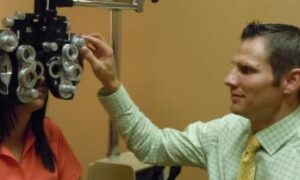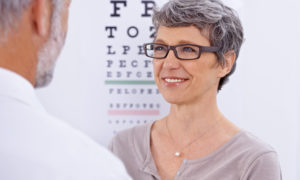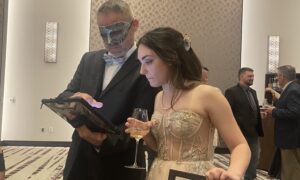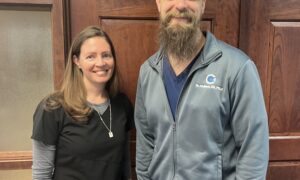By Roger Mummert
ROB Editorial Director

March 6, 2019
“…You can make it anywhere.” That’s from the song “New York, New York,” and New Yorkers proudly sing along when it is played after home games at Yankee Stadium.
Earlier this year, Amazon dumped plans to build an HQ2 in New York, New York–and they got the ol’ Bronx cheer. Amazon, which had been granted $3 billion in tax abatements, was faulted for being “not tough enough to make it in New York,” or, at least, not tough enough for New York’s strong union traditions. So they will try another city, Amazon said.
The Amazon’s HQ2 saga underscores an inescapable truth: Technology jobs (and the families those jobs support) are migrating to cities and metros with a highly skilled workforce to fill them. They are not going to rural communities.
Also this year, the electronics giant Foxconn, based in Taiwan, cancelled plans to establish a manufacturing plant in rural Wisconsin. Instead, they scaled back plans to just a research center. In rural Wisconsin? No way, say analysts; big brains are found in big cities with universities and research centers. Rural Wisconsin is better suited to dairy cows and walleye anglers, apparently.
Other Articles to Explore
So what does the urban job migration mean to healthcare delivery—and to eyecare–now and in the future? A great deal, in fact. As cities and select suburban areas gain population, especially in young and high-earning workers, rural communities see increasing disparities in healthcare access, quality and workforce.
The delivery of eyecare in rural America was the subject of a series of discussions I had at SECO International, held this past month in New Orleans. I sat down with Mike Rothschild, OD, who formerly practiced in Carrollton in western Georgia and Ted McElroy, OD, who practices in the charming and decidedly rural town of Tifton in southern Georgia.
I have visited Ted’s practice in Tifton and was duly impressed. The office is stylish and contemporary, and his staff is warm and dedicated. Ted’s building is located on a shady street across from the regional hospital. The town has a colorful history, a main street where pickups park on a slant in front of brick storefronts, a local college, good restaurants and a huge pecan outlet offering the bounty of a million or more pecan trees under cultivation in the surrounding countryside.
Yes, you can get boiled peanuts there, too.
Ted just filled an open position for an associate OD, but it took him two-and-a-half years to do it. This plum position remained open at a practice that, by all indications, is booming and where patients are appreciative and loyal.
“When I talk to optometry students, they tell me they want to do medical optometry, all the things they’ve just learned,” Ted told me. “And the best place to do that is in a rural practice.”
At SECO, I also spoke with Kristopher May, OD, who practices in Coldwater, Mississippi.
“I grew up and went to school in Memphis, but I moved down to rural Mississippi because it’s God’s country,” he told me.
“Didn’t Elvis go the other direction?” I asked.
“Yes, well, he was smarter than me,” said Kris.
But then, Elvis wasn’t an optometrist. Kris explained that in cities an OD refers out many eye conditions that an OD in a rural practice is called on to address.
“In the city, there’s a specialist down the street or even in the same medical building,” he said. “But in the countryside, that specialist is you, you’re on.”
Couple these comments with an insight provided by Bob Schultz, CEO of Vision One Credit Union. In a SECO lecture “Building Value In Your Practice,” Bob noted that rural practices generate higher net revenues than urban practices, due to the fact that they provide more medical services, often to an aged patient base. Bob further noted that rural practices have lower acquisition costs, which underscores opportunities for ODs looking to become established in practice or to add to an existing practice.
Mark Wright, OD, FCOVD, our professional editor, explained that while a practice sale price is significantly determined by net cash flow, the special circumstance of the rural practice often keeps that sale price low. “ODs coming out of school want to live in a lively place where they meet other Millennials,” he said. “But rural practices offer outstanding opportunities to practice full-scope optometry and to flourish.”
The urban bias is understandable. I was drawn to the bright lights of New York City when I came out of college, and my two Millennial daughters were, as well. Still, I am in no way anti-small town. I was born in a small city of 60,000 in Pennsylvania, then at age 7 moved to a nearby college town one-tenth the size. The cornfields started where the new ranch houses ended. My high school was half suburban kids like me, and half farm kids. Hearing the farm kids talking about hunting deer or harvesting tobacco expanded my limited world view.
My first eye doctor was an old-school ophthalmologist, who barked at me to sit up straight, measured my Rx, then wrote a script and sent me down the street to an opticianry shop where I made my choice of frames: black or brown.
My uncle was a small-town dentist in Kentucky. When I visited and walked around town with him, folks continually stopped us to say hello and often they thanked him for the care he’d provided. He was a rock star, cherished in his community, and he wouldn’t have had it any other way. When I visited Mike Rothschild’s practice, and we went out to dinner, I saw the same appreciation: Patients came up to our table, said hi and thanked Mike for his care. That doesn’t much happen in midtown Manhattan. And you can’t get boiled peanuts there, either.
Since we began with a city song, let’s end with a rural one.
To paraphrase the bard of Bloomington, Ind., John Mellencamp: “I was born in a small town…. Gonna live and die in a small town…Gonna have my annual comprehensive eye exam and all of my medical eyecare needs addressed by a small town OD, baby…it’s a small town for me!”
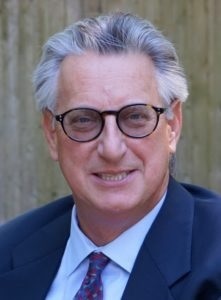 Roger Mummert is Editorial Director of Review of Optometric Business. Contact: rmummert@jobson.com.
Roger Mummert is Editorial Director of Review of Optometric Business. Contact: rmummert@jobson.com.

